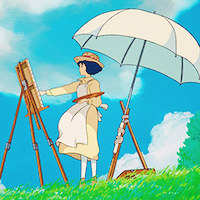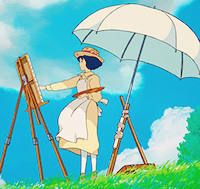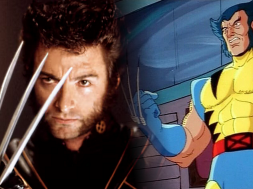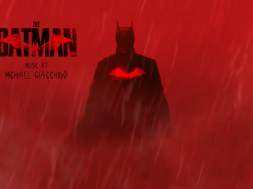
Review: The Wind Rises (part 1 of 2)

Before considering the film in question I must explain the title. The Wind Rises is being billed as the last film to be made by the famed director Hayao Miyazaki. Sources close to the great man have suggested that this may not be the case (Miyazaki has made such claims before), but the tag line for the film is his ‘final masterpiece’. So while the film may prove not to be the last film directed by one of Japan’s greatest exports, the film provokes two types of questions that have to be addressed. The first are questions as to Miyazaki’s career as a whole; the second questions as to the position of The Wind Rises in that careers and corpus of work. There is just one problem: me. I am purposed towards a more humble aim, waxing lyrical about the film as a single piece (though, I submit, I might allude to one or two other works here and there).
Lyrical is indeed the word that comes to mind when thinking back in the film. The feature is very un-rushed, and sets the story before its audience with a combination of intimacy and restraint. We begin with a young boy with aspirations towards becoming an aeronautical engineer (he cannot be a pilot owing to his eyesight). The film unfolds around that very ambition and the hurdles that Jirô encounters along the way to building an aeroplane.
 The story is about devotion. Jirô’s only goal is to make good flying machines for their own sake. Indeed the notion of artisanal creation as an end in itself could doubtless be applied to Miyaki himself. However, to make aeroplanes our young would be engineer must apply himself in the service of Japan’s 20th Century military. The use of the planes as bombers is a corruption of their self-justification and the impending sense of their being sullied immediately prior to their destruction. The figure who helps Jirô embodies this principle is one Jirô meets in a dreams, his idle Caproni, Italy’s famed aeronautical engineer. It is not a balance easily struck, faced with the options of tainted beauty or none to speak of the choice; their conversations have the ring of Tennessee Williams: “If I got rid of my demons, I’d lose my angels”. The counterweight is Jirô’s first love, Naoko Satomi, his angel and his muse. Their love is perfectly allegorical to the aeroplanes it engenders, self-sustaining for as long as it is lasts, as long as circumstance allows it to last.
The story is about devotion. Jirô’s only goal is to make good flying machines for their own sake. Indeed the notion of artisanal creation as an end in itself could doubtless be applied to Miyaki himself. However, to make aeroplanes our young would be engineer must apply himself in the service of Japan’s 20th Century military. The use of the planes as bombers is a corruption of their self-justification and the impending sense of their being sullied immediately prior to their destruction. The figure who helps Jirô embodies this principle is one Jirô meets in a dreams, his idle Caproni, Italy’s famed aeronautical engineer. It is not a balance easily struck, faced with the options of tainted beauty or none to speak of the choice; their conversations have the ring of Tennessee Williams: “If I got rid of my demons, I’d lose my angels”. The counterweight is Jirô’s first love, Naoko Satomi, his angel and his muse. Their love is perfectly allegorical to the aeroplanes it engenders, self-sustaining for as long as it is lasts, as long as circumstance allows it to last.
I’ve already mentioned the distinct reciprocity between the selfless devotion to a single task and an individual. To be wholly honest I will be surprised if many watch The Wind Rises and do not regard Jirô’s behavior as selfish, but in the interest of spoilers I’ll leave of why I would disagree here. Instead, what I will say is that there is a not only an allegorical link between romantic love and vocational work, but that the former fuels that latter. The distractions and adversities that our protagonists encounters are many and varied but Naoko is not one. She is an intensifier and a catalyst to the life and work. Her status as such might be considered derivative of the later writings of Susan Sontag were it not for Miyzaki’s pace of storytelling, which for all the on screen turbulence, always returns to equilibrium. That is perhaps the most concise indicator of the film’s success: while remaining even and gentle for long stretches, The Wind Rises never feels long. Not only lyrical but operatic, it’s as if the film alters your metabolism, taking its time and not wasting yours.
 Sonntag is worth bearing in mind along with two other writers. The movie takes its title from the poems of Paul Valéry who came to prominence in the fin de siècle, a period whose motto ‘art for art’s sake’ could be easily paraphrased here ‘planes for planes’ sake’. Also, Thomas Mann’s novel Magic Mountain is made mention. The significances of the inter-medial references on their own aside, as a whole they give the film an element of maturation not found so explicitly in Miyazaki’s earlier films (of course, that is of course not to say children could not watch this film).
Sonntag is worth bearing in mind along with two other writers. The movie takes its title from the poems of Paul Valéry who came to prominence in the fin de siècle, a period whose motto ‘art for art’s sake’ could be easily paraphrased here ‘planes for planes’ sake’. Also, Thomas Mann’s novel Magic Mountain is made mention. The significances of the inter-medial references on their own aside, as a whole they give the film an element of maturation not found so explicitly in Miyazaki’s earlier films (of course, that is of course not to say children could not watch this film).
So, if this feature is a farewell Miyazaki is leaving on a high. Then again, he is also leaving us with tear-stained cheeks. The prospect of so great a talent no longer making film is always a loss, but it is felt more sharply here as the film is shot through with loss. The Wind Rises is a film that probably won’t leave you with dry eyes. Mine weren’t and I don’t often cry at films. For this you might label the film a tear-jerker. However, applying said term can be misleading, connoting a pornographic sensibility, which would be a mis-construel in this case. Therefore, while I await my colleague’s follow-up article, handkerchiefs are highly recommended as is The Wind Rises along with them.
9/10











